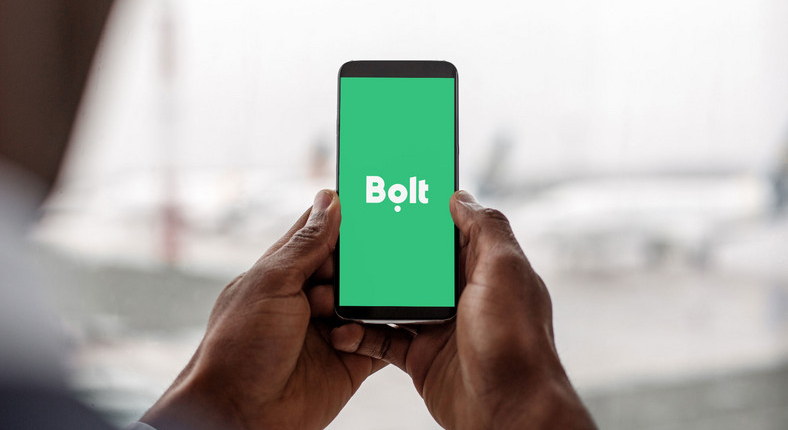Investors King provides information on various topics such as Bolt’s plan to offer Nigerian drivers the opportunity to earn extra income through its car branding initiative, the need for the Central Bank of Nigeria to regulate digital banks in Nigeria, Stripe’s recent $6.5 billion fundraising, the U.S. government’s demand for TikTok to be sold or risk a ban due to national security concerns, and TikTok’s response to the demand. These articles provide valuable insights into the current state of the ride-hailing industry in Nigeria, the growth of digital banking, the fundraising activities of Stripe, and the ongoing concerns about national security and privacy associated with Chinese-owned tech companies.
Bolt Launches Car Branding Initiative to Help Nigerian Drivers Earn Extra Income

Bolt, the ride-hailing mobility company, has launched a car branding initiative to enable drivers in Nigeria to earn extra income. According to a message sent to drivers, Bolt is looking for drivers who are interested in advertising its brand on their vehicles. In return, they will receive weekly compensation for displaying the company’s logo while driving. Bolt’s initiative seeks to provide an easy and simple way for drivers to earn extra cash.
However, Comrade Ibrahim Ayoade, the President of the Amalgamated Union of App-based Transport Workers Union (AUATWN), has expressed concerns about the safety of Nigerian drivers involved in car branding, citing the high rate of insecurity in the country. He suggested that the initiative may not be safe for drivers as they may be targeted in case of any problems around town.
Bolt has always sought ways to enable its drivers to earn extra income. In 2021, the company launched a vehicle financing scheme in Nigeria, enabling drivers to own a car with a low 15% equity repayment plan. This plan was initiated to make life easier for drivers, increase employment rates and improve the economy. With the Bolt vehicle financing scheme, drivers can get a car for as low as ₦15,000 weekly installments, along with comprehensive insurance and vehicle tracking support, which allows them to maintain flexible work hours while increasing their income.
Reports also indicate that the ride-hailing firm intends to inject €500m funds into its African operations in the next two years, creating opportunities for over 300,000 new drivers and couriers to join the platform in 2023.
In other news, some experts in Nigeria have called for the Central Bank of Nigeria (CBN) to regulate and promote transparency in digital banks to protect customers’ deposits. The experts’ caution comes amid a recent cash shortage in Nigeria that has led a significant percentage of Nigerians to turn to digital banks, which mostly operate with mobile apps for their banking activities.
Overall, Bolt’s car branding initiative represents a new opportunity for Nigerian drivers to earn extra income, but the safety concerns raised by the AUATWN president may dampen drivers’ enthusiasm for the program. However, with Bolt’s vehicle financing scheme, drivers can still earn extra income by owning a car with a low 15% equity repayment plan and comprehensive insurance coverage, which should boost employment rates and improve the economy.
Reports Reveal Concerns over Licensing and Regulation of Digital Banks in Nigeria
Recent reports suggest that most digital banks used by Nigerians operate under the license of Microfinance banks (MFBs), which could pose problems for customers in the long run. This is because the majority of these digital banks do not have the licenses to operate in the country, and as such, much is not known about them.
In November 2020, the Central Bank of Nigeria revoked the licenses of 42 MFBs, which had been out of operation for some time, to protect citizens’ deposits. However, concerns have been raised about the high rate of usage of these bank apps, which experts claim may pose a serious challenge in the future.
Unlike traditional banks, most digital banks do not have physical buildings where customers can go to make complaints or inquiries, and their customer care lines are not always reliable. In addition, if a customer loses their money in a traditional bank, there are provisions in the Nigeria Deposit Insurance Company (NDIC) and the asset management Corporation in Nigeria to recover the money, but not much is known about the new generation of digital banks, making it highly risky.
Despite these concerns, experts have lauded the operations of digital banks for alleviating the plight of citizens. However, they have urged the Central Bank of Nigeria to come out and reassure Nigerians about the operations of these banks in the country. They also recommended that citizens should know more about the people behind these banks, as much is not known about them, which leads to skepticism.
It is interesting to note that before now, traditional banks and other financial institutions were the primary providers of financial services. However, with rapid technological advancement, digital banks like Kuda Microfinance Bank, Opay, Vbank, etc., are now competing with traditional banks to provide financial services.
The primary focus of these digital banks is to drive financial inclusion using technology, and as such, they seek to reach out to the unbanked populace that traditional banks have not yet captured.
In other news, American financial services company Stripe has raised more than $6.5 billion in a Series I fundraising, with a valuation of $50 billion. The fundraising round was led by existing and new investors, including General Catalyst, MSD Partners, Andreessen Horowitz, Baillie Gifford, Founders Fund, and Thrive Capital, as well as GIC, Goldman Sachs Asset and Wealth Management, and Temasek.
Stripe Raises Over $6.5 Billion in Series I Fundraising Round
Stripe, a leading American financial services company, has raised more than $6.5 billion in a Series I fundraising round. The funds will be used to provide liquidity to current and former employees and address employee withholding tax obligations related to equity awards. Stripe also noted that it does not need this capital to run its business.
The company’s co-founder and president, John Collison, said that the funds would allow employees to access the value they have helped to create. He also noted that the internet economy is still young, and there is much to discover and create.
Stripe has recently collaborated with Artificial Intelligence company OpenAI to monetize OpenAI’s flagship products and enhance its platform with GPT-4. Seventy-five percent of the leading generative AI companies have reportedly signed up with Stripe to go to market quickly, scale with compliance in mind, and bring their products to many more users worldwide.
Stripe’s enterprise user base has compounded since 2019, and now includes some of the largest global enterprises like BMW, Amazon, Maersk, Ford, and Salesforce. One hundred businesses now handle more than $1 billion on Stripe every year. Seventy-five percent of these global businesses use Stripe for more than just payments, and over 70% use Stripe to manage operations across multiple countries.
Meanwhile, the United States government has taken a hard stance towards Chinese-owned video app TikTok, ordering the app to be sold or risk a ban as it seeks to resolve national security concerns. The recent demand to sell the app is a significant move in President Biden’s administration towards TikTok, which has been under scrutiny for years over concerns that China could request vital users’ data from the app.
In other news, the collapse of tech-focused Silicon Valley Bank has served as a strong banking partner for numerous start-ups and their venture backers. However, Stripe disclosed that it had no exposure to SVB.
The United States government is demanding the sale of popular Chinese-owned video app, TikTok, or risk being banned. The move is an attempt to resolve national security concerns, as there are fears that China may request vital user data from the app. This stance began under the administration of former President Trump, who threatened to ban the app unless TikTok parent company ByteDance sold its stake to an American company. TikTok has expressed dissatisfaction with the U.S. government’s decision, claiming that its security proposal, which involves storing American data in the United States, offers the best protection for users without breaching private information. Despite the controversy, TikTok remains highly popular, with about 80 million monthly active users in the United States, two-thirds of which are teenagers. TikTok has undertaken an effort to transfer all US-based data to the U.S. as part of an initiative it calls Project Texas.
Don’t miss interesting posts on Famousbio









